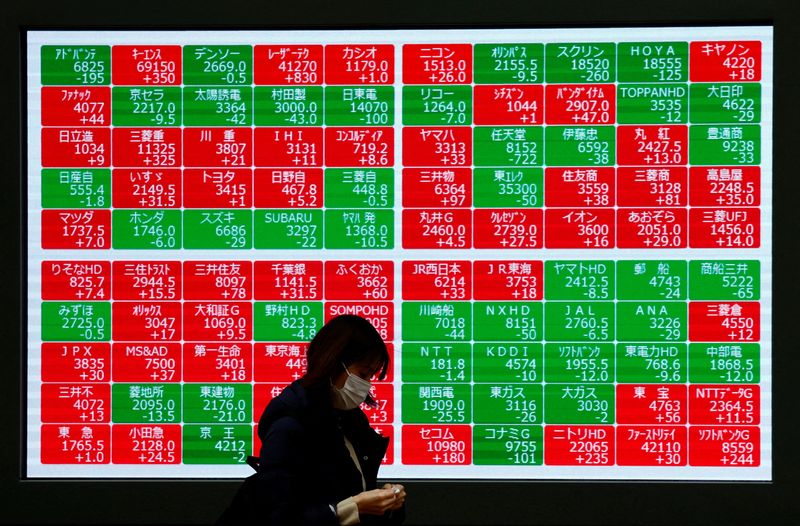By Gaurav Dogra
(Reuters) - Emerging Asian equity markets faced a second month of foreign outflows in May as robust U.S. economic data fuelled skepticism over Federal Reserve rate cuts.
Data from stock exchanges in India, Indonesia, Vietnam, Thailand, South Korea, the Philippines, and Taiwan revealed that overseas investors withdrew a net $3.58 billion out of regional equities last month, following a $4.92 billion worth of net selling in April.
Last month, improved U.S. consumer confidence and a positive labour market outlook led investors to scale back expectations for U.S. rate cuts. Furthermore, minutes from the Fed's latest policy meeting indicated that policymakers expect inflation to take longer than previously thought to reach the central bank's 2% target.
Indian equities experienced a significant foreign outflow of $3.06 billion last month, the largest monthly exodus since January, prompted by uncertainty over the results of the country's general elections.
On Tuesday, the NSE Nifty 50 and S&P BSE Sensex both plunged roughly 6%, marking their sharpest decline in more than four years, as election results indicated a slim majority for Prime Minister Narendra Modi's alliance.
The shares have since rebounded as investors look forward to the formation of a new government under Modi.
Kunal Vora, head of India equity research at BNP Paribas (OTC:BNPQY), said some foreign investors might choose to reduce their overweight positions and allocate some capital to the other EMs like China until the dust settles on government formation and allocation of key ministries.
"Foreign investors could use any potential consolidation as an opportunity to buy in. However, this time they might be more tilted towards large cap and defensive names," Prerna Garg, equity strategy associate at HSBC said.
"As the dust settles and the budget in early July gives more clarity on the policy front, we think investors would feel more comfortable in returning to their favourite growth story."
Meanwhile, equity markets in Indonesia, Vietnam, South Korea, Thailand, and the Philippines recorded net foreign outflows of $881 million, $747 million, $679 million, $451 million, and $174 million, respectively.

Bucking the trend, Taiwanese equities secured a net $2.41 billion in overseas capital after $4.61 billion of net selling in the previous month.
"We believe the Taiwan market continued to benefit from the optimism of the AI development given its unique position in the semiconductor supply chain," Jason Lui, head of APAC equity and derivative strategy at BNP Paribas said.